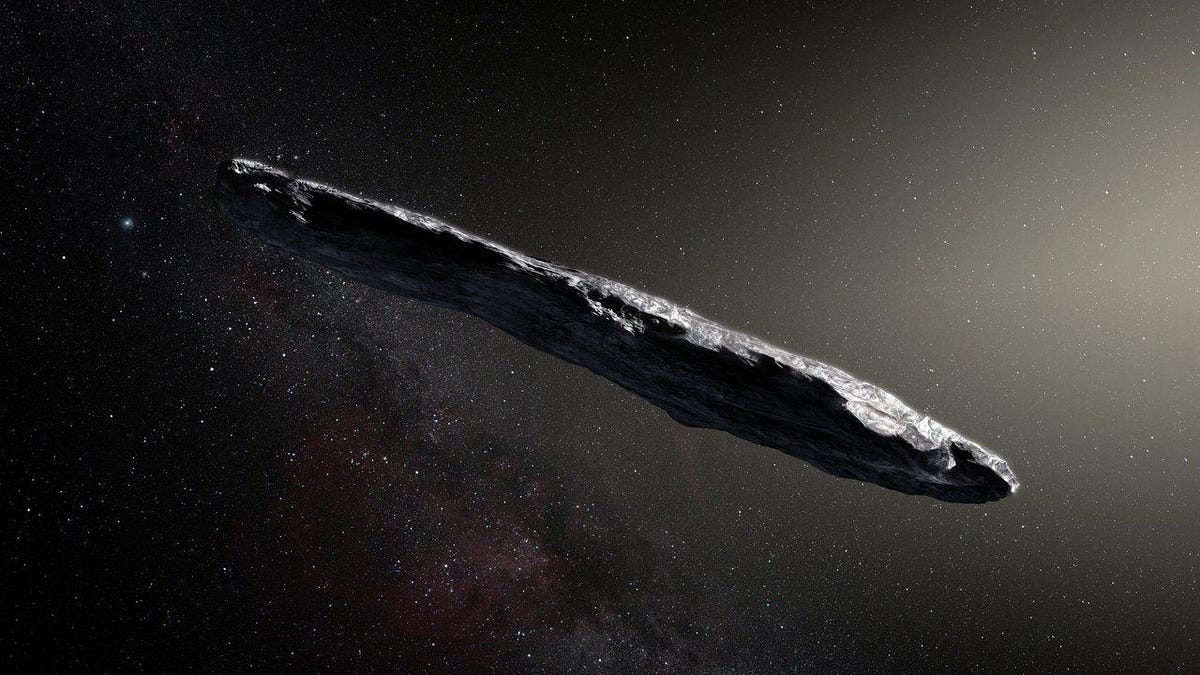Discovering alien life probably won't freak us out, studies say
From megastructures around Tabby's Star to Earth-like planets at Trappist-1, research finds we react positively to news extraterrestrial life might exist.

This artist's impression shows 'Oumuamua, an interstellar asteroid.
Much of sci-fi tells us that when humanity is faced with incontrovertible proof of the existence of life beyond Earth, we're going to freak out and burn everything down like we just won the Super Bowl.
But now there's some scientific evidence that when that big news breaks, humans might actually remain pretty chill.
"If we came face to face with life outside of Earth, we would actually be pretty upbeat about it," Arizona State University psychology professor Michael Varnum said in a news release.
Varnum makes this conclusion based on an analysis of newspaper articles covering past potential discoveries of extraterrestrial life. Specifically, he and his colleagues looked at articles about the weird dimming of so-called "Tabby's Star," Earth-like planets around the star Trappist-1, and the potential discovery of Martian microbe fossils from 1996. They found language in the stories demonstrated much more positive emotion than fear or other negative emotions.
In a second study, the team also surveyed over 500 people, asking them to guess how they and humanity would react to an announcement that alien microbial life had been discovered. In the case of both their own reaction and everyone else's, the participants hypothesized responses that were more positive than negative.
"I would have some excitement about the news," one participant said. "It would be exciting even if it was a primitive form."
The research was published last month in Frontiers in Psychology.
Varnum also presented additional, unpublished research Friday at the annual meeting of the American Association for the Advancement of Science in Austin, Texas. He performed a similar analysis on recent coverage of the possibility that 'Oumuamua, the interstellar asteroid/comet thing spotted last year, might actually be an alien spacecraft. Even this news elicited more positive than negative emotions, some of which were probably mine.
"Taken together, this work suggests if we find out we're not alone, we'll take the news rather well," Varnum said.
It's worth noting, however, that all the stories Varnum studied involve potential ETs that are either very far away, long dead, microbial or speeding away from Earth. If word ever breaks of an imminent extraterrestrial invasion, "War of the Worlds" or "Independence Day" style, we're likely to express a few more negative emotions.
Technically Literate: Original works of short fiction with unique perspectives on tech, exclusively on CNET.
Crowd Control: A crowdsourced science fiction novel written by CNET readers.

